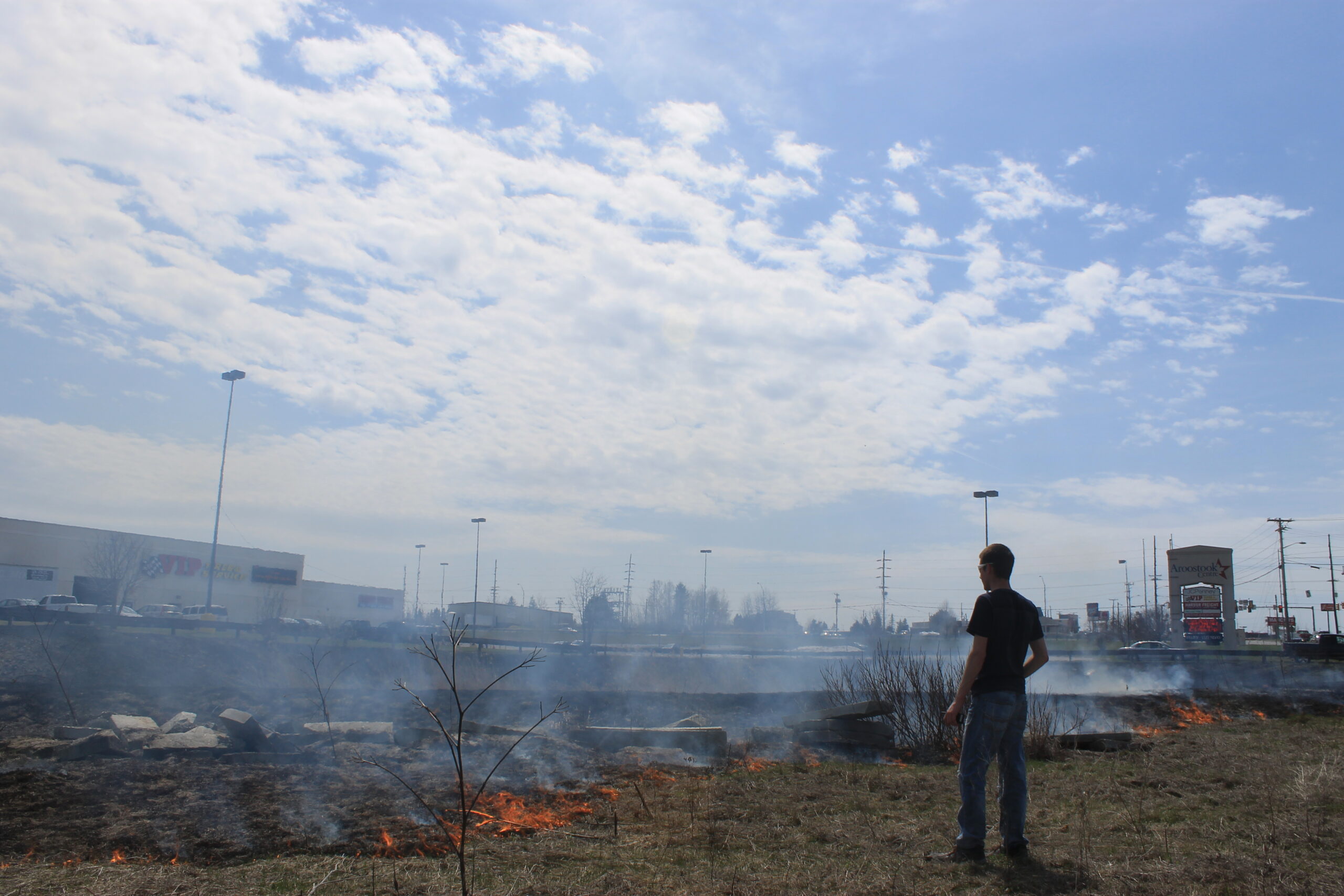
ASHLAND, Maine — The relatively dry spring in northern Maine has kept fire departments and forest rangers busy, and prompted the Maine Forest Service to alert people burning brush to be extra careful.
“What’s unique about this year is there’s very little ground moisture,” said Bill Greaves, regional ranger with the forest service. “There’s surface fuels on top of the ground, then the duff layer that’s in the ground. This year it seems like the duff layer is very dry.”
Greaves said that municipal fire departments and the Maine Forest Service have responded to several fires big and small that were linked to controlled burns of brush or waste wood.
“We’ve had several wildland fires, most of them while people are burning grass or debris and they’ve escaped by winds,” Greaves said.

Members of the Bridgewater Fire Department survey the scene of a grass fire on Bootfoot Road Saturday, May 19. (Courtesy of Bridgewater Fire Department)
“Usually spring fires will go out when they hit cold ground or wet duff. Now, fires are burning deep into that duff layer. People think their fire is out and they walk away. Hours later it will pick up and spread.”
One grass fire in Bridgewater on May 19 was blamed on a brush fire — set without a burn permit — that spread amid high winds and dry weather. The town fire department extinguished the fire in a short time before it caused significant damage.
Another fire on May 10 in Fort Fairfield destroyed a potato storage facility after a controlled burn of old wood pallet boxes spread to other nearby wood boxes in high winds and ultimately to the building.
“That’s a situation where somebody should have paid more attention,” Greaves said.
Greaves said that people burning brush may need to take extra precautions in especially dry and windy weather, such as smothering dry ground layers with water or having a hose or ample water in buckets on hand.
All open burning in Maine requires a fire permit, with the exception of small fires for cooking and warmth, Greaves said.
Greaves said people can discuss the risks and mitigation steps with a forest ranger or town fire warden when they take out a burn permit.
“If you skip that piece of the process, you may not have accurate information,” Greaves said. “Fire wardens can visit the site and make an assessment about what kind of equipment is needed for fire suppression.”
Greaves said the Maine Forest Service also has a wildland interface program that focuses on fire hazard mitigation for residential homeowners and municipalities.
“We can come around and do assessments in a community and assess the risk of spreading and burning homes,” Greaves said. Sometimes, he said, it might make sense for property owners to forgo burning and opt to use or hire a wood chipper or take waste brush to municipal transfer stations.




